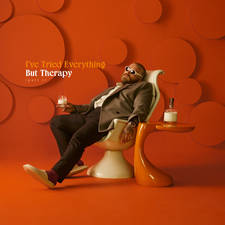Eastleigh's Naked Rambler Loses Human Rights Case
28 October 2014, 11:04 | Updated: 28 October 2014, 11:06
The Eastleigh man known as the Naked Rambler has lost his case at the European Court of Human Rights, where he claimed he had a right to be naked in public.
Former marine Stephen Gough had alleged that his repeated arrest, prosecution, conviction and imprisonment for being naked in public and his treatment in detention violated his rights.
The court unanimously found there had been no violation of Articles 8 and 10 of the Convention.
Gough, 54, has walked naked throughout the United Kingdom, from John O'Groats to Land's End, and is a well-known campaigner for his right to appear nude in public - even though his actions have often landed him in prison.
He spent total of five years and three months in detention from May 2006 to July 2011 when his arrest for breaching the peace sparked the current case before the European Court of Human Rights (ECHR) in Strasbourg.
He was approached by two police officers on Manson Terrace, a public road leading from HMP Perth to Edinburgh Road, and their suggestion that he put on some clothes fell on deaf ears.
He appeared naked in court as he pleaded not guilty to breaching the peace and rejected the sheriff's warnings that he would be held in contempt if he did not put some clothes on.
The sheriff found that Gough's conduct on July 20 2011 was severe enough to cause alarm to ordinary people, threatened serious disturbance to the community, and presented as genuinely alarming, in its context, to any reasonable person.
Gough was sentenced to 330 days for the breach of the peace and 90 days for the contempt charge, together with 237 days unspent from a previous sentence, a total of 657 days. The sentences were not backdated and they were to run consecutively. It meant the total length of the sentence was one year, nine months and 18 days.
The ECHR ruled today:
``The applicant's imprisonment is the consequence of his repeated violation of the criminal law in full knowledge of the consequences, through conduct which he knew full well not only goes against the standards of accepted public behaviour in any modern democratic society but also is liable to be alarming and morally and otherwise offensive to other, unwarned members of the public going about their ordinary business.''
The court described Gough's case as ``troubling'' but ruled that ``relevant and sufficient'' measures had been taken against him by the police and legal authorities which saw him arrested in 2011. They were meeting a ``pressing social need in response to repeated anti-social conduct'' by Gough.
The ECHR stated:
``Even though, cumulatively, the penalties imposed on the applicant undoubtedly did entail serious consequences for him, the court cannot find in the circumstances of his case, having regard in particular to his own responsibility for his plight, that the public authorities in Scotland unjustifiably interfered with his exercise of freedom of expression. Accordingly, no violation of Article 10 of the Convention has been established.''
The ECHR said it was prepared to accept that arguments on the acceptance of public nudity in a modern society is a matter of public interest, but also noted that Mr Gough's view is ``shared by very few people'' and that the matter raises moral and public order issues.
They also pointed out that, as a passionate campaigner, Mr Gough had many ways to express his position, including choosing to enter into a public debate.
The court stated: ``He was also under a duty, particularly in light of the fact that he was asking for tolerance in respect of his own conduct, to demonstrate tolerance of and sensibility to the views of other members of the public.
``However, the applicant appears to reject any suggestion that acceptance of public nudity may vary depending on the nature of the location and the presence of other members of the public.
``Without any demonstration of sensibility to the views of others and the behaviour that they might consider offensive, he insists upon his right to appear naked at all times and in all places, including in the courts, in the communal areas of prisons and on aeroplanes.''
Mr Gough described the judgment as ``a disappointment'' but ominously added: ``I have no choice but to continue.''
He said: ``I expected them to take the wider view. They have not. Then again, what great endeavour ever succeeded without having to surmount many obstacles that stood in its way? Why should it be any different for me? I have no choice but to continue.''
He argued: ``How can nature expressed in human form be indecent? How can any sane person be offended at seeing the human body? Yet it is these absurd beliefs that form the underlying assumptions of the countless criminal charges and convictions against me, resulting in over nine years in solitary confinement in British prisons.
``Intolerance and ignorance go together, in the same way that freedom and truth do. We cannot be intolerant and free. We cannot ignore the truth and expect justice to be the outcome. And an unjust world affects us all, whether we are aware of it or not.
``I was brought up to believe I lived in a country that celebrated eccentricity and difference, not only because it added variety and colour to the otherwise slavish conformity that can feel depressive, constricting and sometimes just downright boring, but that it also indicated a deeper appreciation of how the unorthodox, at its very essence, is how originality and creative energy manifests itself - that without the freedom to express our individuality and uniqueness in our own way, something inside us dies, and we can the world around us become less vital.''

